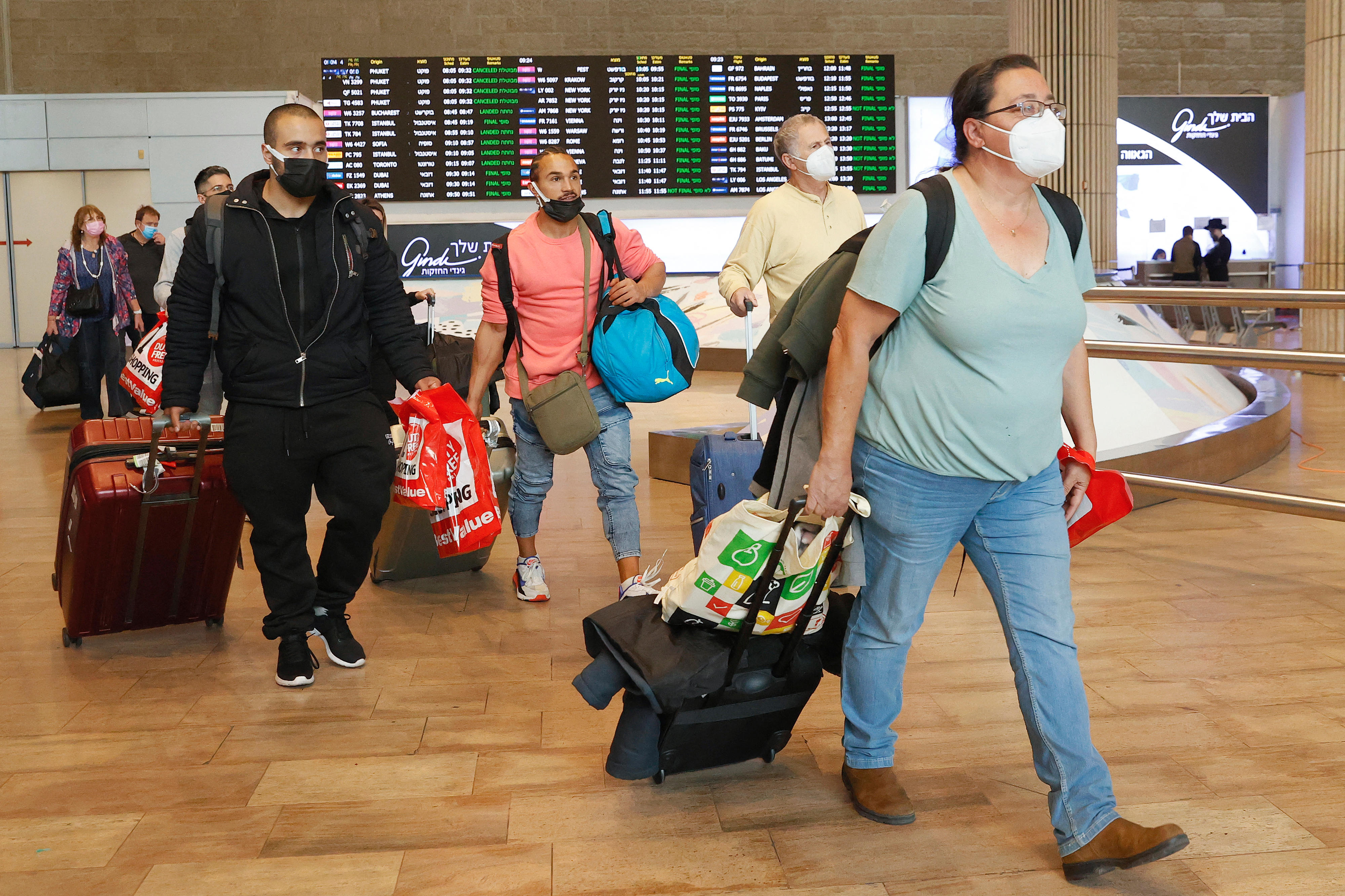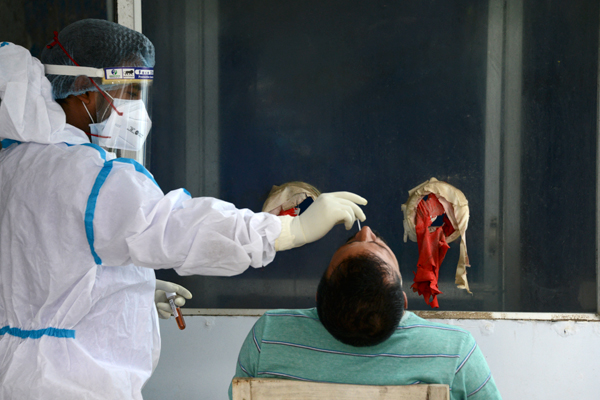Prime
New South African Covid variant sparks fresh UK travel ban

Passengers upon arrival at Ben Gurion Airport near Lod in Israel as the country reopened to tourists vaccinated against Covid-19 on November 1. Fresh restrictions are being imposed across Europe as Covid cases spike. PHOTO/AFP
What you need to know:
Uganda’s Ministry of Health officials say they are reviewing all possible options and a position will be communicated on how to confront the new variant.
The United Kingdom has barred flights from six African countries a few hours after the World Health Organization (WHO) announced that a new coronavirus (Covid-19) variant with several mutations, has been detected in South Africa.
Uganda’s Ministry of Health officials told this newspaper that they are reviewing all possible options and a position will be communicated on how to confront the new variant.
The BBC quoted the UK Health Secretary Sajid Javid as saying that with effect from Friday, six countries would be added to the red list, with flights originating from them being temporarily banned. To that regard, all flights from South Africa, Namibia, Zimbabwe, Botswana, Lesotho and Eswatini [formerly Swaziland] are being suspended, according to the news agency.
The ban comes at a time when many European countries are experiencing a surge in infections and deaths as they face the cold winter season. Cold weather increases the risk of contracting coronavirus.
Dr Maria Van Kerkhove, the WHO technical lead on Covid-19, said in a session livestreamed on the organisation’s social media channels last night that there is still scanty information and they cannot yet tell whether the variant is more transmissible and deadlier.
“B.1.1.529 is a variant (of the coronavirus) that has been detected and reported to us from our colleagues in South Africa. We don’t know very much about this variant yet, what we do know is that this variant has a large number of mutations,” she said.
“And the concern is that if you have so many mutations, it can have an impact on how the virus behaves. So right now researchers are getting together to understand where these mutations are and what that may potentially mean for our diagnostics, therapeutics and vaccines. It is good that they are being detected. It means we have a system in place. It will take a few weeks to understand what impacts this variant has.”
Mr Emmanuel Ainebyoona, the Ministry of Health spokesperson, told Saturday Monitor thus: “We are reviewing all the options and we are following the development but for the meantime, all our measures remain as they are with emphasis on vaccination.”
“The scientific advisory committee at the Ministry of Health will communicate a position but we are reviewing all the options,” he added.
Dr Monica Musenero, an epidemiologist and senior presidential adviser on epidemics, said in a tweet: “This new SARS-CoV-2 variant emerging from Southern Africa is a concern. Let’s meet to strategise on the scientific front.”
What experts say
Prof Henry Kajumbula, a microbiologist at Makerere University and the head of infection control and prevention in the government Scientific Advisory Committee, said it is always not obvious that a mutation is to make the virus more deadly.
“Sometimes the virus changes to make it infect more people and live in the host (infected person) without causing death. The virus does this to survive longer. But the mutation can also make the virus more deadly,” he said.
Information from researchers in Japan indicate that delta variant which had caused havoc in the country around August, could have «mutated into extinction.” They say this is evident in the drastic drop in infection rate rates from over 23,000 daily cases to just around 16 new cases in the country’s capital Tokyo as of this week.
The researchers termed this as the virus genes undergoing “copying errors”, which lead to “evolutionary dead ends”.
Prof Pontiano Kaleebu, the director of the Uganda Virus Research Institute (UVRI), told this reporter last week that they are increasing their surveillance and that some few mutations of the delta variant “that are not worrying” have been detected.
Delta variant is the major driver of infections and deaths in Uganda. The virus has so far killed more than 3,000 people in Uganda and infected more than 120,000 since the outbreak last year.




